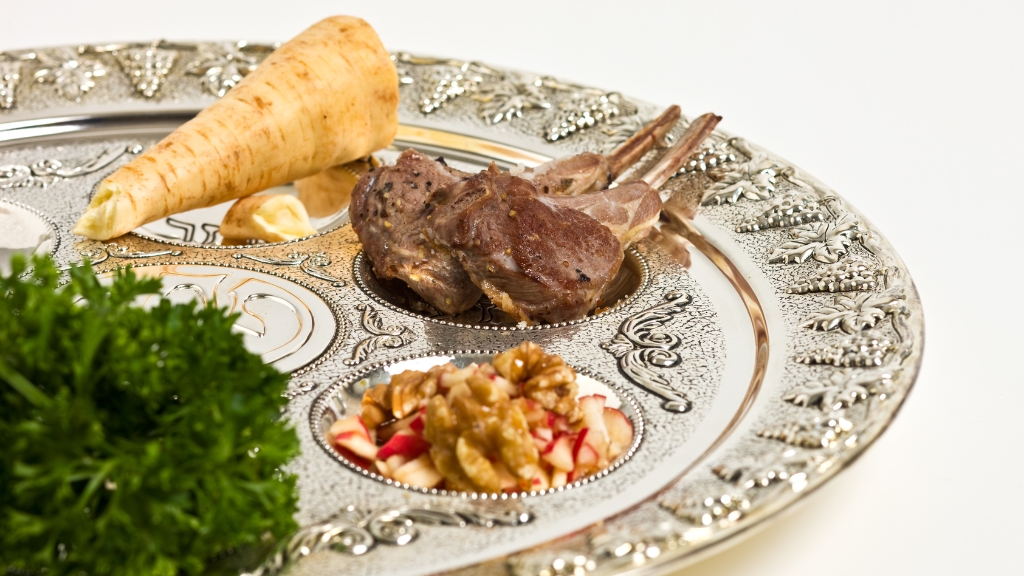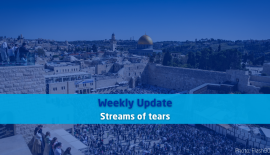Purim & Pesach – Reflections on their Significance Today
“A short summary of every Jewish holiday: They tried to kill us. We won. Let’s eat.” (Comedian Alan King)
The Jewish holiday of Purim and the biblical feast of Pesach provide us with some valuable insights into the miraculous ways of God.
Purim in 2024 began at sundown on Saturday 23 March and ended at sundown on Sunday 24 March. The word Purim is Hebrew for ‘lots’, referring to the plot of the Persian king’s advisor Haman to draw lots to determine when all the Jews would be destroyed. Esther, the king’s wife and queen, saved her people from Haman’s plot to massacre the Jews by revealing it to the king.
It is a well-known story found in the biblical book of Esther. On the occasions when I have led a tour group to Auschwitz-Birkenau, I have read out to everyone on the bus from Krakow to Oswiecim (Auschwitz) the whole book of Esther—a reminder both that God is still watching over His people, and that we are called to do all that we can to ensure that ‘never again’ will there be another Holocaust. And as we all know only too well, Never Again is Now.
About Purim the Jewish website Judaism 101 says this: “The primary commandment related to Purim is to hear
the reading of the book of Esther. The book of Esther is commonly known as the Megillah, which means scroll…. It is customary to boo, hiss, stamp feet and rattle gragers (noisemakers; see illustration) whenever the name of
Haman is mentioned in the service. The purpose of this custom is to ‘blot out the name of Haman.’”
In the Torah, a commandment instructs the Jewish people to “blot out the remembrance of Amalek” (Deuteronomy 25:19), which includes Haman. Amalek, a tribe descended from Esau, were the first to attack the Jews as they were fleeing from Egypt. One of the favorite aspects of Purim for children is that they are encouraged then to make as much noise as they can!
Costume parties are held, usually with outlandish costumes. “We are also commanded to eat, drink and be merry… In addition, we are commanded to send out gifts of food or drink, and to make gifts to charity.”
Now about the biblical feast of Pesach. The well known and in Jewish history pivotal story of the Exodus of the Israelites from Egypt after generations of slavery is recounted in Exodus 1-15.
Pesach (Passover) is one of three pilgrimage festivals during which all the men of Israel are to come up to Jerusalem. The other two are Shavuot (Pentecost) and Sukkot (Feast of Tabernacles).
Celebrated on the Hebrew month of Nisan 14–21 [this year from 22 April to 29 April (30 April outside Israel)], Pesach is an eight-day holiday remembering the Hebrews’ exodus from Egypt. Unlike most of the biblical feasts, Pesach is celebrated primarily in the home with friends and family, not in a synagogue.
At least 98% of Israeli Jews participate, to some degree, in Pesach, celebrating God’s protection and provision. It’s a popular time for Jews from the nations to visit Israel, and many Israeli families take week-long vacations.”” “Writes Rabbi Yehudah Prero (www.torah.org): “Purim celebrates our deliverance from the hands of those who oppressed us, those who plotted our destruction. This is a theme seen in the celebration of Pesach, as well. On Pesach, we celebrate our exile from Egypt, from those who enslaved and persecuted us. Both Purim and Pesach share the theme of salvation and deliverance to freedom.”
And so both Purim and Pesach are powerful opportunities for Jewish people worldwide to remember and recount God’s miraculous action on their behalf in delivering them from their enemies.
‘Pesach (Passover) is one of three pilgrimage festivals during which all the men of Israel are to come up to Jerusalem.’
At the same time Christians rejoice in the freedom made available through Yeshua, whose self-sacrificial love we remember with deep thanksgiving. Together— Jew and Christian—may we never cease to marvel at the greatness and mercy of our God, who acts so powerfully on our behalf!
And now for a fascinating insight from a Jewish seminary graduate called Aliza—this has really blessed me!
“Purim is a holiday all about the hidden miracles in life
—Hashem [a name used for God by Jewish people] was hidden in the story of Purim, and His name is not mentioned once throughout Megillat Esther.
“As the name alludes to, megilla comes from the Hebrew word ‘L’galot’, to reveal or uncover, and Esther comes from the word ‘Hester’, hidden or covered.
Thus, Purim is viewed as a holiday where Hashem’s guiding hand was hidden, but we look through to see that now and commemorate His presence in our lives, though seemingly hidden.
“Pesach, on the other hand, was a time when Hashem’s miracles were ever-present, and so obvious to all. They were great in quantity and in quality, even more so than any other time in Jewish history. Pesach is thus a” “time for looking at the miracles which are obvious.
“The time in between Purim and Pesach should then be a time where we go from not being able to see Hashem or His miracles to being able to see Him everywhere in everything. This time should be a growth period where we work on seeing His hand in everything; such as the fact that we breathe and walk, that the snow melts and that the sun shines, that a baby is born and that an old man dies…
“As Pesach then approaches we have prepared ourselves to commemorate His hand in the Pesach story more so than we would have been able to otherwise, and that is really what this time should be used for. We can’t just jump straight into Pesach and the remembering of the redemption from Egypt.
“Remembrance days are often used as just that; days for remembrance. However there’s no internalising these things we remember or growth from what we have learned. This is where Pesach differs from any American or Canadian remembrance holidays. This Yom Tov is for remembering the story through the reading of the Haggadah and constant reminders throughout the year during our prayers and such, but we don’t just remember. We also learn lessons and open our eyes to the miracles Hashem has given us.
“My bracha [blessing] to you all is that you be able to recognise the hand of Hashem in everything in your lives, in the good times and the ‘bad,’ and in the mundane and extraordinary. Hashem is always there to guide us, but it is up to us whether we open our eyes to His presence or not.”
And so I am reminded that each one of us must grow in our recognition of God’s miraculous and ever- protective hand upon our lives—whether in the tiny details or the major life-changing events.
I am also reminded that our God—the God of Abraham, Isaac and Jacob—will surely watch over and protect His covenant people the Jews as they are continually threatened by those who would destroy them and seek to wipe Israel off the world map.
Looking for some reading from God’s word? Try the book of Esther, Exodus 1-15 and Psalm 121.”





